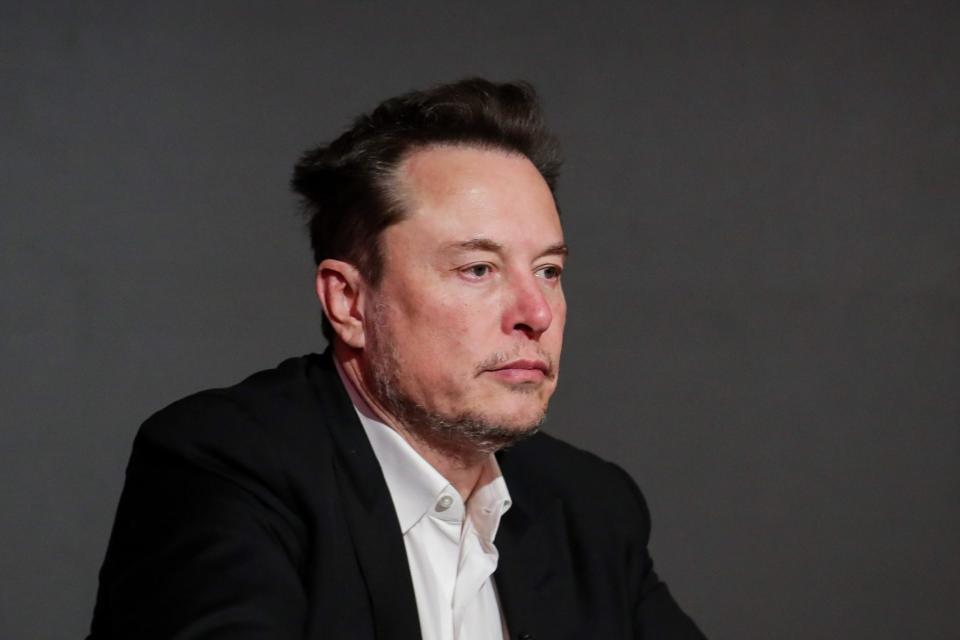Elon Musk’s big week gets even more hectic with EU tariff decision and sexual impropriety report

Even by Elon Musk’s standards, this is turning out to be an extraordinary week for news about the notorious headline hound.
Tomorrow, of course, is the day when Tesla’s shareholders will have their say on Musk’s absurdly girthy pay package, which would be worth somewhere north of $50 billion (the value fluctuates, as it’s composed of Tesla shares). Plenty has already been said about that, so let’s just wait for the result, but in the meantime do read my colleague Peter Vanham’s article on Tesla’s invocation of “stockholder democracy” in defense of the package.
Whatever the outcome of tomorrow, Tesla and its shareholders have another issue on their hands: The European Union just announced new, provisional tariffs of up to 38.1% on imports of Chinese electric vehicles, to counter what the European Commission calls “unfair subsidization” by Beijing.
This is a problem for Tesla because, while the company has a gigafactory just outside Berlin that churns out its Model Y cars for the European market, the Model 3s that it sells in Europe are made in Shanghai. So, as of July 4, shipments of Tesla’s cheapest model to Europe will become subject to a new tariff of 21%, on top of the 10% levy that is already applied to imported EVs—though it won’t have to actually pay up until November when the Commission finalizes the tariffs (Tesla has requested and may receive “an individually calculated duty rate” at this point, the Commission said).
Whatever Tesla ends up having to pay, this will make it harder to compete against the likes of Volkswagen in the European market.
It's not hard to see why Musk has recently taken to railing against the idea of Western tariffs on Chinese EVs. As recently as January, he was calling for trade barriers against such cars, but last month he declared that “things that inhibit freedom of exchange or distort the market are not good.” (The context there was the Biden administration’s decision to levy 100% import duties on China-made EVs, which didn’t have much of a direct effect on Tesla as the company makes its U.S. cars in the U.S.)
Moving away from Tesla, the Wall Street Journal has an explosive and deeply reported piece out about Musk’s conduct at SpaceX, where multiple female employees have said that Musk “showed them an unusual amount of attention or pursued them.”
One case had already been publicly reported—that of a SpaceX flight attendant who alleged that Musk exposed himself to her and made an indecent proposal. However, the Journal now reports that another employee said, while leaving the company in 2013, that Musk had asked her to bear his children. (Musk has also had twins with Shivon Zilis, an executive at his Neuralink brain-implant company.)
The report also states that he had sexual relationships with two women at SpaceX: an engineering intern, and a direct report. SpaceX president Gwynne Shotwell told the Journal that its article contained “untruths, mischaracterizations, and revisionist history,” but unnamed former SpaceX executives said Musk was able to act with impunity within the company.
Far less seriously, but still somewhat embarrassingly, Musk has abruptly dropped his lawsuit against OpenAI and its CEO, Sam Altman, in which he accused them of abandoning OpenAI’s founding agreement and charter by no longer publishing details of its models, nor making them open-source. While these were valid criticisms—the company, which Musk cofounded alongside Altman, was named OpenAI for a reason—that didn’t mean Musk had much of a legal case. The Guardian reports that his lawyers gave no reason for dropping the suit.
And speaking of transparency, Musk has also decided that X users will by default no longer show the world which posts they’ve liked. “Important to allow people to like posts without getting attacked for doing so!” the poly-CEO, who has taken flak for repeatedly liking the posts of far-right extremists, tweeted.
More news below.
David Meyer
Want to send thoughts or suggestions to Data Sheet? Drop a line here.
This story was originally featured on Fortune.com

 Yahoo Finance
Yahoo Finance 